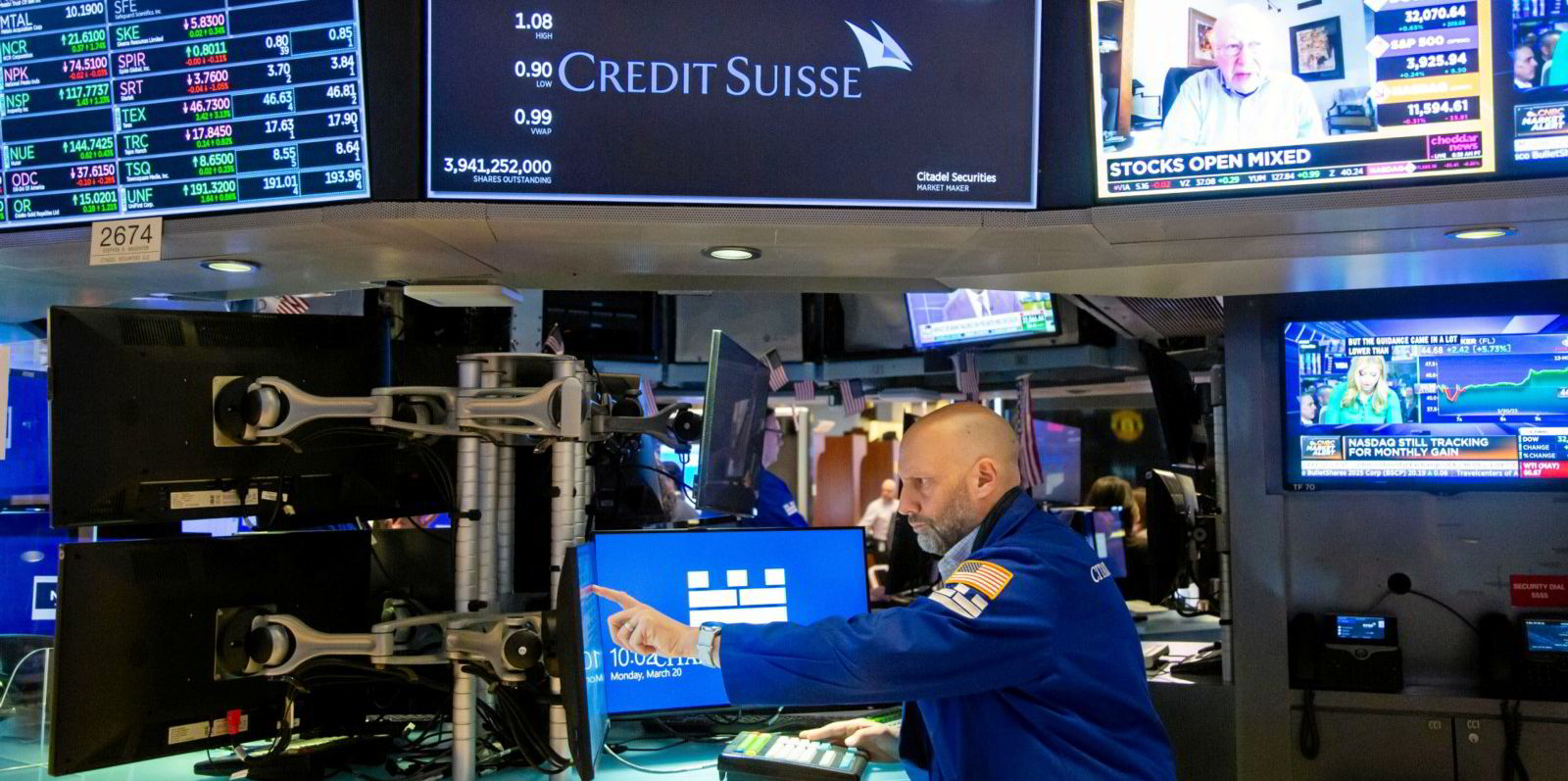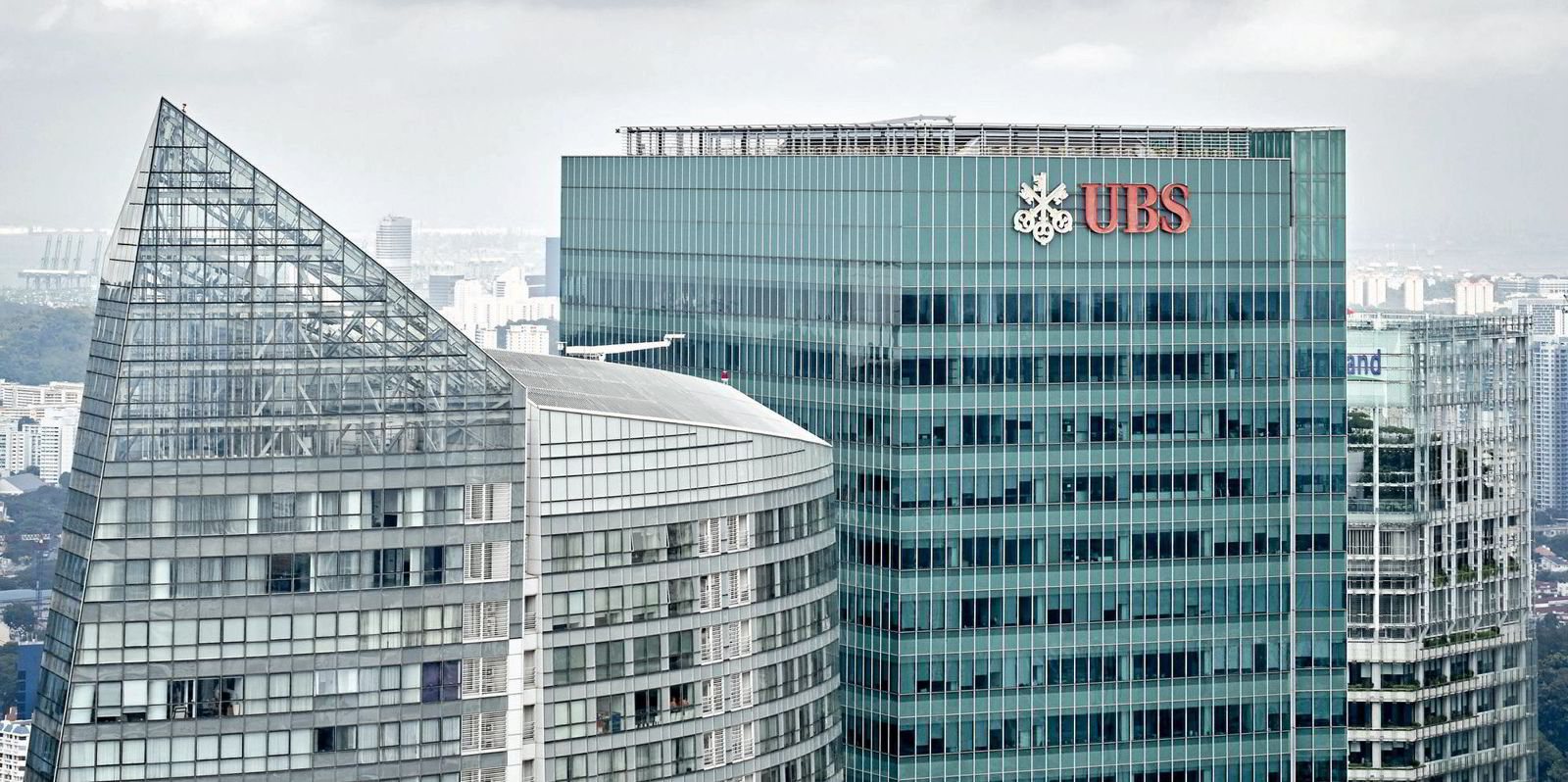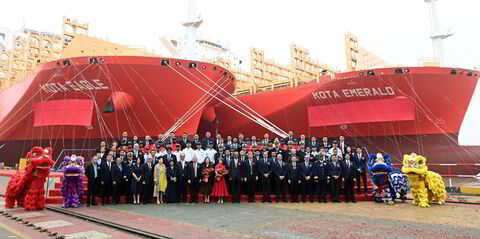A new banking crisis has sent stock markets tumbling, commodity prices plummeting and some shipping shares plunging. But is this the start or the end of the turmoil?
The emergency rescue of Credit Suisse — Switzerland’s second largest lender and a major investor in Greek shipping — plus the failure of two midsize US banks sent tremors throughout the global trading system.
By Tuesday, a measure of calm had been re-established, with European and Asian equities pushing higher.
But credit agency Moody’s followed its rival S&P by slapping a “negative” outlook on UBS, the forced saviour of Credit Suisse and the country’s biggest bank.
Panic has been averted for now and while there are ominous similarities, there are also significant differences with the early stages of the 2008 financial crash.
Shipping has been caught in the downdraft because lenders globally have been reminded that an interconnected world is one where a financial virus spreads quickly.
Central bank lending rates are expected to rise now, reversing what a month ago was the trend to move in the opposite direction.
Higher borrowing costs and more conservative lending practices by commercial banks are bad news for the maritime world but they also put a brake on wider commercial expansion and could risk triggering global recession.
Trouble comes fortunately just as China, which accounts for 50% of all dry bulk demand and is the world’s largest oil importer, is moving fast out of its Covid lockdown era.
This has boosted dry and tanker markets over recent months, but finance jitters could still undermine this trend.

Clarksons Securities tells us that stock-listed crude tanker companies lost a tenth of their value last week despite freight rates continuing to rocket upwards, with some VLCC hire rates in excess of $100,000 per day.
Dry bulk operator Genco Shipping & Trading saw its shares fall 11% over the seven days while, overall, Clarksons estimates that the 66 publicly traded shipping shares fell an average 6%.
Meanwhile, the price of Brent crude slumped by 12% last week and, at one stage, hit $70 per barrel compared with a 52-week high of $125.
Shipbroker BRS argues that the good news for tankers is that China will want to take advantage of lower prices to rebuild inventories.
The Paris-based broking shop discounts the idea that there will be a return to floating storage, as seen during the much more extreme Covid-induced oil price fall, but added that Beijing is already taking on more tanker tonnage.
The International Energy Agency is still predicting global oil demand to rise by 2m barrels per day this year — fed largely by Chinese imports.
The positive news for shipping is also that bunker prices should fall, but inflation remains high in other parts of the wider maritime system.
So are we back to a rerun of the 2008 financial crash, which brought the biggest freight boom in shipping history to a juddering halt?
No one really knows whether the need to pump in $54bn into Credit Suisse and then get UBS to take it on may be a harbinger of wider woes.
Certainly, the collapse of Silicon Valley Bank (SVB) and Signature Bank has hit business confidence.
The ZEW index of economic sentiment in Germany — Europe’s largest economy — has more than halved in a month, according to new figures out this week.
But Credit Suisse and SVB had their own specific problems prior to last week, while under a series of measurements, banks in both the US and Europe are in better shape than they were in 2008.
2008 revisited?
The maritime world itself is also in better shape. Certainly, outside the container sector, shipping is not encumbered with the kind of massive boom-influenced orderbook that was in place 15 years ago.
Frode Morkedal, managing director of equity research at Clarksons Platou Securities, argues in his latest Shipping Weekly note that the industry should be able to depend on this year’s anticipated 5% Chinese economic growth to enable it to “stay steady during financial turmoil”.
This is the beginning and not the end of turbulence — but it should not be 2008 revisited.





